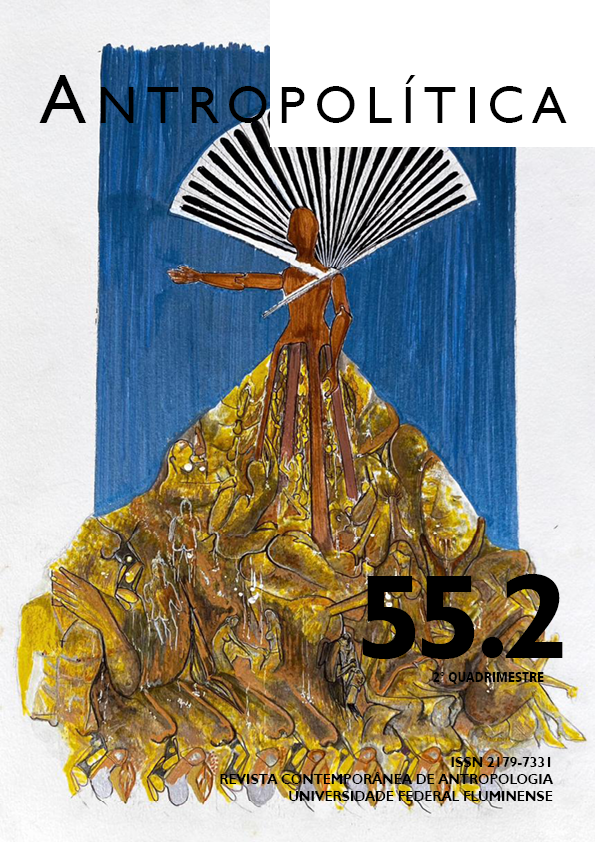The brazilian transnationalization of religious intolerance: the case of the Universal Church in Argentina
DOI:
https://doi.org/10.22409/antropolitica.i.a56270Keywords:
Transnationalization, Religious intolerance, Neo-Pentecostalism, Universal Church.Abstract
Several Brazilian religions have been transnationalized around the world since the last century. Along with these institutions, cultural, social and political aspects of their context of origin also circulate. As the foundation of the nation, historic structural and institutional Brazilian racism, represented by a certain type of religious intolerance, also entered the stream of religious transnationalization. In this sense, we hope to infer a more general (“global”) reflection on the ways in which Brazil’s religious intolerance is consistent with other national societies and which strategies can be launched for this purpose, based on the specifics of neo Pentecostalism, through the presence of the Universal Church of the Kingdom of God in Argentina. Methodologically, this approach is based on the participant observation of church rituals abroad and on the analysis of local media regarding, in terms of this presence. We conclude that the religious intolerance made in Brazil can be consistent with and strengthen prejudices in transnational realities such as Argentina.
Downloads
Published
How to Cite
Issue
Section
License
Copyright (c) 2023 Marcelo Tadvald

This work is licensed under a Creative Commons Attribution 4.0 International License.
O conteúdo da revista Antropolítica, em sua totalidade, está licenciado sob uma Licença Creative Commons de atribuição CC-BY (http://creativecommons.org/licenses/by/4.0/deed.pt).
De acordo com a licença os seguintes direitos são concedidos:
- Compartilhar – copiar e redistribuir o material em qualquer suporte ou formato;
- Adaptar – remixar, transformar, e criar a partir do material para qualquer fim, mesmo que comercial;
- O licenciante não pode revogar estes direitos desde que você respeite os termos da licença.
De acordo com os termos seguintes:
- Atribuição – Você deve informar o crédito adequado, fornecer um link para a licença e indicar se alterações foram feitas. Você deve fazê-lo em qualquer maneira razoável, mas de modo algo que sugira que o licenciante o apoia ou aprova seu uso;
- Sem restrições adicionais — Você não pode aplicar termos jurídicos ou medidas de caráter tecnológico que restrinjam legalmente outros de fazerem algo que a licença permita.


